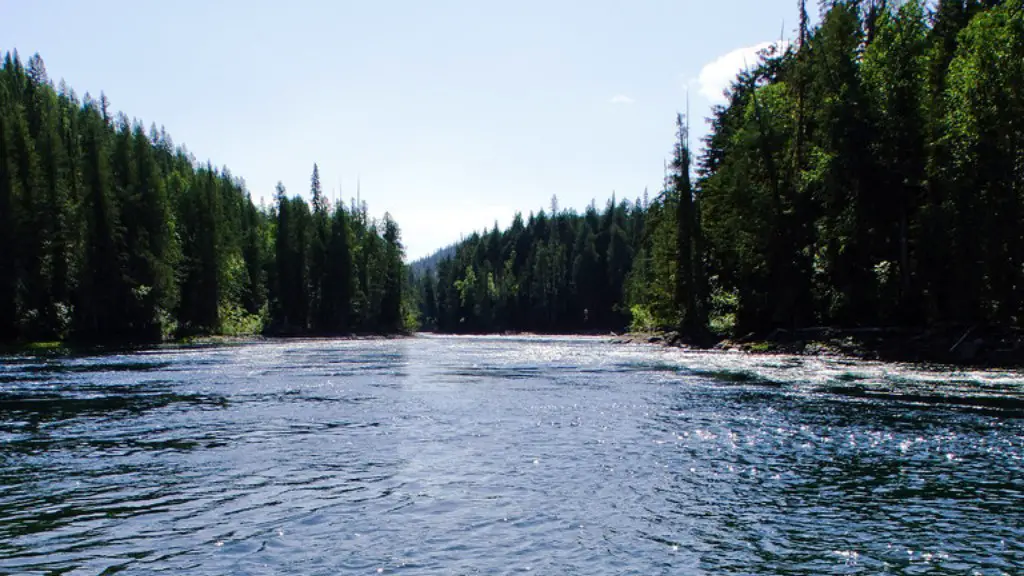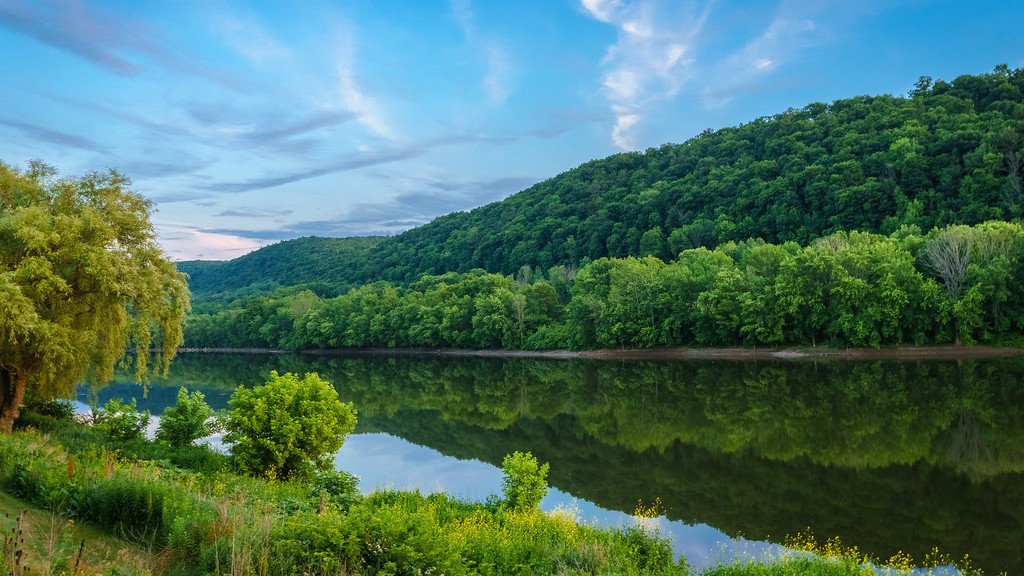The Mississippi River is the longest river in North America. Running 2,340 miles, the mighty Mississippi starts in northern Minnesota and snakes its way down to the Gulf of Mexico. This invaluable resource has long been known to be a cornerstone of industry, travel, and recreation in America. Now, it appears this beloved river is facing a challenge of its own: is the Mississippi River drying up?
It turns out that the Mississippi is indeed facing water scarcity, though not due to extreme drought or global warming. Reasonable and well-engineered regulations are often responsible for damming the Mississippi—a policy which has recently come under scrutiny due to the loss of water levels.
To get to the heart of the matter, we must look to the regulations implemented by the U.S. Army Corps of Engineers. The Corps of Engineers has been diligently managing the water level in the river for decades. This is often done to facilitate business, energy production, and recreation activities. These admirable efforts, however, have had unintended consequences for many areas of the Mississippi River.
The most concerning consequence of the Corps’s efforts is the potential decrease in water levels, particularly in areas near the Mississippi Delta. Experts say that this decline could reduce the river’s hydraulic power and form long-term ecological effects. These changes could even lead to the displacement of local wildlife, as well as those who depend on the river.
Interestingly, the Corps of Engineers has taken proactive steps to mitigate these potential losses. These include projects such as the Upper Mississippi River Restoration to protect habitats and fish-breeding grounds. Additionally, the organization has implemented adaptive management measures to improve a river’s hydrology.
The efforts of the Corps of Engineers have not gone unnoticed, and their work has been commended by many environmental groups. However, the ultimate question of whether or not the Mississippi is drying up remains unanswered.
In order to find the answer, it is necessary to look at the underlying issues that cause the river to become dry in certain areas. The main reasons for water levels declining in the Mississippi River are extensive human activities, such as agriculture and forestry. In addition to this, climate change and other severe weather events are causing damages to the river, including erosion and the destruction of habitats.
To put the situation into perspective, one can look to the 2018 drought that hit the Mississippi. This event caused a record-breaking drop in water levels, and some believe this will mark the beginning of an annual occurrence.
Environmental Impact
Should the Mississippi River’s water levels continue to decrease, the environmental repercussions could be tremendous. Some of the effects could include an increase in air and water pollution, endangered aquatic species, and altered weather patterns. Therefore, it is important to take the necessary steps to ensure that the river remains healthy and capable of sustaining life.
The Corps of Engineers has identified several strategies to help protect and restore the Mississippi River and its associated ecosystems, such as implementing wetland restoration projects and establishing protection zones. The organization has also expressed their commitment to working with local residents, businesses, and organizations to maintain the rivers’s health. In the end, the hope is that these interventions will be enough to help restore the river to a healthy state.
Multi-Disciplinary Solutions
The challenge of restoring the Mississippi River water level also requires collaboration from multiple groups and experts. Currently, scientists, government agencies, and other stakeholders are working together to develop solutions to protect the river. These solutions are being carefully crafted to ensure that the river’s water remains replenished and that the ecosystem remains unaffected.
To do this, environmental scientists are focusing on modeling river water flows, preventing erosion, and restoring the health of habitats in the river. Scientists from other disciplines, such as engineering and economics, are also actively developing strategies to limit the effects of droughts and conserve water.
In general, it is clear that the Mississippi River is an invaluable resource and its preservation is of the utmost importance. There is much that can be done to help ensure that the river remains healthy. The most important thing is for individuals to come together and work towards a collective goal of maintaining and improving the river’s water levels.
The Economic Impact
While it is true that controlling the Mississippi River water levels has important environmental implications, it also has economic repercussions. The Mississippi River serves as a channel for a number of industries, including the timber, barge, and shipping industries. These businesses rely heavily on the river for their day-to-day operations. Any major changes in the water levels could have tragic financial consequences.
In addition to economic effects, the water levels of the Mississippi also impact land use and transportation. Since much of the infrastructure around the river is reliant on the river’s natural flow, drops in water levels could lead to the deterioration of these vital resources.
The Mississippi River is an integral component of the American economy and culture. This is why it’s imperative for individuals to understand the issue and advocate for the protection of the river. Otherwise, we’re in danger of seeing the river’s water levels further decline, resulting in decreased economic activity and environmental destruction.
Conclusion
The looming question of whether or not the Mississippi River is in danger of drying up is a complicated issue that requires an interdisciplinary approach. Scientists, engineers, and economists are all hard at work, tirelessly striving to create solutions that protect the river and its associated ecosystems. In the meantime, it is important to remain vigilant and be aware of the potential risks that the river faces. Only with collective effort can we ensure that the Mississippi River will remain healthy and prosperous for generations to come.




